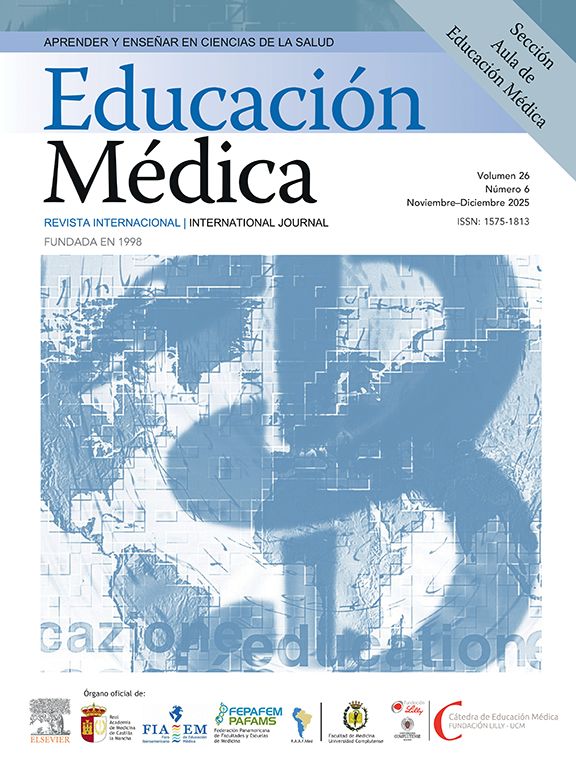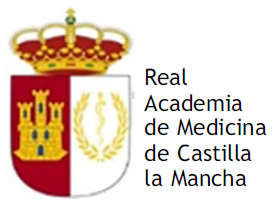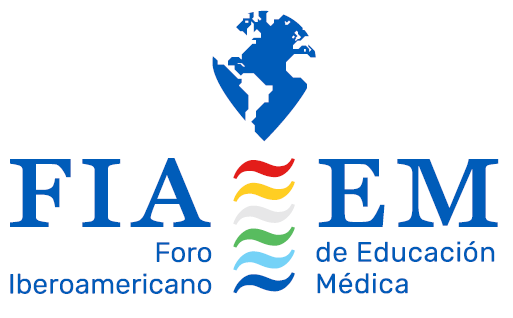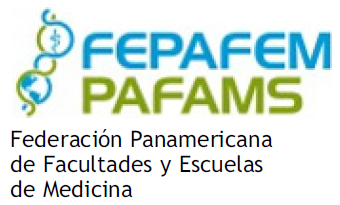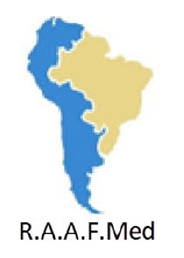The Simcup is a leading national event in the medical field, with clinical competition in terms of simulation. Here, groups of medical students from different faculties in the country participate in patient simulation scenarios, particularly in the field of emergency and disaster medicine. Our aim is to present SIMCUP Morocco in a comprehensive way. This involves describing the participation process, strategies for success, elucidating the format, stages, and timetable. In addition, we aim to provide an impartial assessment of its importance, its educational value for medical students, and its influence on their training.
Materials and methodsWe developed a questionnaire covering 7 key areas to assess the effectiveness of the Simcup: Teamwork, communication, debriefing, psychological aspects, overall perspectives, areas for improvement, and a bonus category. We collected responses from 120 medical students representing various faculties in Morocco.
ResultsA total of 120 participated in our study, with an average age between 25 and 26 years. The participation rate of virtual staff varied, with a majority indicating their presence at 47.5%. Notably, 81% of students strongly agreed with the importance of implementing simulation as an assessment modality within faculties. These results argue in favor of the relevance of Simcup and underline the superiority of simulation-based learning over traditional clinical teaching, both as a teaching method and for the evaluation of learning outcomes.
ConclusionDespite the limited number of studies investigating the comparative effectiveness of simulation-based learning versus traditional clinical teaching, our results highlight the value of simulation-based approaches in medical education.
El Simcup es un evento nacional líder en el campo de la medicina, con competencia clínica en términos de simulación. En él, grupos de estudiantes de medicina de diferentes facultades del país participan en escenarios de simulación de pacientes, especialmente en el campo de la medicina de urgencias y catástrofes. Nuestro objetivo es presentar la SIMCUP Marruecos de forma exhaustiva. Esto implica describir el proceso de participación, las estrategias para el éxito, dilucidar el formato, las etapas y el calendario. Además, pretendemos ofrecer una evaluación imparcial de su importancia, su valor educativo para los estudiantes de medicina y su influencia en su formación.
Materiales y métodosDesarrollamos un cuestionario que cubría siete áreas clave para evaluar la eficacia del Simcup trabajo en equipo, comunicación, debriefing, aspectos psicológicos, perspectivas generales, áreas de mejora y una categoría de bonificación. Recogimos las respuestas de 120 estudiantes de medicina de varias facultades de Marruecos.
ResultadosUn total de 120 participaron en nuestro estudio, con una edad media entre 25 y 26 años. La tasa de participación del personal virtual varió, siendo mayoritaria en un 47,5%. Cabe destacar que el 81% de los estudiantes se mostró muy de acuerdo con la importancia de implementar la simulación como modalidad de evaluación dentro de las facultades. Estos resultados argumentan a favor de la relevancia del Simcup y subrayan la superioridad del aprendizaje basado en la simulación sobre la enseñanza clínica tradicional, tanto como método de enseñanza como para la evaluación de los resultados del aprendizaje.
ConclusionesA pesar del limitado número de estudios que investigan la eficacia comparativa del aprendizaje basado en la simulación frente a la enseñanza clínica tradicional, nuestros resultados destacan el valor de los enfoques basados en la simulación en la educación médica.
Simulation, encompassing various technologies and processes, re-enacts events allowing learners to experience success, failure, feedback, and confidence building in a safe environment. This is particularly useful in rare or high-risk scenarios.
In healthcare, medical simulation enables future professionals in all sectors and categories to deal with critical situations without endangering patients or themselves. Its integration into educational programmed is growing in several countries.
Medical simulation offers a safe environment. Psychological safety, in which candidates feel comfortable, is crucial. This enables them to comply with the constructive comments of the jury, which are essential for assessing their performance.
The design of simulation competitions, presented by the Moroccan Simcup model, makes it possible to establish a tailor-made educational platform. These competitions feature simulated clinical cases on high-fidelity mannequins or standardized patients. Groups compete in scenarios lasting between 12 and 15 min, with the audience participating mentally alongside the learners. Jury feedback immediately follows on strengths and areas for improvement, focusing on cognitive, technical, and non-technical skills such as communication and teamwork.
Our aim is to present SIMCUP Morocco in a comprehensive manner, detailing the stages of participation, potential strategies for success, format, staging, and timetable. In addition, we aim to objectively highlight its educational relevance and impact on training.
Materials and methodsSimcup Morocco was created in 2014 by a professor specializing in anesthesia and intensive care at Casablanca University Hospital. The concept of PYGMALION provides an understanding of participation in Simcup.
The initiative aimed to revolutionize medical education, particularly in the field of intensive care. Facebook served as the main platform, leading to the formation of the Pygmalion group in 2014. This team facilitated interactive sessions between teachers and students, through Facebook status updates and subsequent comments. The weekly sessions revolved around question-and-answer discussions, mainly focusing on emergency medicine pathologies. Over time, the initiative was extended to a dedicated website (www.pygmalion.ma).
Monthly quizzes, comprising multiple-choice questions on topics already covered, were organized and students from all regions were ranked according to their performance. The top 24 students from each faculty won tickets to the regional Simcup.
The Simcup Maroc brings together the winning local teams, with 8 teams competing for the title of national champion. The winners win prizes such as international internships, training opportunities, and books. Each year, a different city hosts the national competition, which includes group and knockout stages. Teams are first divided into 2 groups, which compete based on points accumulated. The elimination phase leads to the final, which is preceded by an elimination match between the losing semi-finalists to determine the third-placed team.
The grand final comprises 3 phases, each presenting a distinct scenario, including a compulsory communication scenario involving the transmission of difficult news or the management of social situations.
To assess the effectiveness of Simcup, a questionnaire covering 7 key areas—Teamwork, communication, debriefing, psychological aspects, overall performance, areas for improvement, and the bonus section—was developed. This questionnaire was distributed to participants in several cities via social networks. A retrospective study included 4th and 5th year medical students who participated in the regional and national Simcup Morocco competitions from 2016 to 2018.
ResultsA study was conducted with 120 medical students, mainly 5th and 6th year students, to gather opinions on their experience with Simcup, a medical simulation programme. The participants came from various faculties across the kingdom, with Casablanca being the most represented city. The study aimed to evaluate different aspects of Simcup and the potential improvements that could be made.
In terms of participation, most students (47.5%) attended the virtual sessions. Regarding teamwork, over half of the respondents (52.5%) agreed that there was a strong sense of leadership within their team, with 30.8% strongly agreeing. Additionally, 58.3% strongly agreed that there was mutual assistance between team members.
Communication was also evaluated, and 45% of participants found it to be clear and fluid, with 32.5% strongly agreeing. Simcup was found to have improved communication between colleagues of lower and the same rank, according to 65% and 68.3% of participants, respectively. It also gave senior doctors more confidence (69.2%) and improved communication with paramedics (59.2%). Furthermore, Simcup reduced the stress associated with communicating with patients' families for 70.8% of participants, and 84.2% agreed that it helped doctors prepare for real-life situations.
Debriefing sessions were also assessed, and the majority of participants (74.2%) strongly agreed that they were focused and well-structured. Almost half (49.2%) strongly agreed that positive feedback was provided, and 48.3% strongly agreed that suggestions for improvement were offered. Overall, participants felt that the debriefings were entertaining and helped in knowledge transfer (70%).
Psychological factors were also considered, and 29.2% agreed that stress had a positive impact on their performance, with 20% strongly agreeing. The competitive nature of Simcup was found to positively affect performance by 45% of participants, with 35% strongly agreeing. Moreover, being compared to other teams was perceived as having a positive influence on performance by 38.3% of participants.
Regarding the general aspect of Simcup, the majority strongly agreed that it allowed learning without exposing patients to risk (81.7%) and facilitated the implementation of theoretical lessons (86.7%). It was also seen as beneficial for teamwork training (82.5%) and demystifying rare diseases (67.5%).
As for potential improvements, participants expressed the desire for Simcup to involve a multi-professional team (50%) and use a fair assessment scale (67.5%). Many believed that Simcup helped with competition for internships or residency (46.7%) and provided an advantage over doctors of the same level (42.5%). Participants also acknowledged the potential of simulation in reducing in-hospital deaths due to medical errors (62.5%) and supported its integration into academic faculties (81%).
DiscussionTeam simulation is an effective adult learning approach that provides participants with a platform for contextual and experiential learning. Effective teams in this model work together towards a common goal, leveraging their shared knowledge and skills. This approach is widely supported in the literature, with graduate nursing students participating in team simulations that involve various aspects of patient care. These simulations culminate in a final competition, where students showcase their abilities in front of a large audience, including peers and visiting professors who evaluate their performances and select a winner.1
One of the key benefits of team simulation is the opportunity for participants to refine their communication skills, particularly when interacting with patients. The pre-established clinical scenario serves as a valuable tool for fostering communication within multidisciplinary teams.2 Simulation scenarios, such as resuscitation simulations, usually involve learners working in small groups with assigned roles. This encourages social interaction, which is a fundamental aspect of the social constructivist theory. According to this theory, learning is enhanced through collective engagement and interaction within a social context, rather than individual interaction with the environment.3
Debriefing plays a central role in the success of simulation scenarios.4–7 It involves providing structured feedback to participants to improve their performance. A well-designed debriefing grid helps identify performance gaps,8 and immediate feedback is one of the main advantages of simulation.9 In addition to debriefing, the role of judges in simulation scenarios is crucial. An engaging and knowledgeable judge can elevate discussions and highlight important learning points even in seemingly mundane scenarios. Clear instructions provided to judges, including case outlines with critical actions highlighted, contribute to a conducive learning environment. Diversifying the selection of judges based on their skills and teaching style enriches participant observation and provides new perspectives on crisis management skills.10
Psychological factors like stress, anxiety, and fatigue are recognized as factors that can influence patient care.11–14 These factors are also important considerations in simulation settings. By simulating realistic scenarios, participants are exposed to these psychological factors, allowing them to develop strategies to manage them effectively.15
In conclusion, team simulation is a valuable approach for adult learning that provides participants with a platform for contextual and experiential learning. It promotes effective teamwork, communication, and the development of important skills in various aspects of patient care. Debriefing and the role of judges are crucial elements in the success of simulation scenarios, and psychological factors are recognized as important considerations in these settings.15
Stress exerts a comparable impact on performance akin to competition, a phenomenon illustrated by the Yerkes-Dodson curve.15 This curve depicts how performance escalates with physiological or mental arousal up to a certain threshold; beyond this point, heightened arousal leads to a decline in performance.
The educational efficacy of competition is well-documented in literature.16,17 Additionally, competition has been shown to enhance resident engagement in simulation training.18
However, concerns have been raised regarding the public nature of debriefing sessions in these competitions, potentially compromising the model of psychological safety in training. Psychological safety, as described in educational literature, entails fostering an environment of trust, wherein learners feel comfortable making and analyzing mistakes. The inherent vulnerability perceived when conducting simulations in front of strangers heightens this concern.10 Unfortunately, existing literature on debriefing offers limited guidance on establishing an environment that balances stimulation with psychological safety.19
Instructors face a central dilemma when moving away from judgmental approaches: How to deliver critical feedback without eliciting negative emotions that undermine the learner's confidence and psychological security. Psychological safety entails creating an environment where interpersonal risk-taking is encouraged, where mistakes are viewed as opportunities for learning rather than as punishable offenses.
Instructors often adopt protective social strategies, such as the “sandwich” approach, wherein criticism is sandwiched between compliments, to mitigate this dilemma and preserve the learner's self-esteem.
Simulation serves as a valuable tool for exploring and addressing cognitive errors—errors in thought processes that can lead to misdiagnosis and inappropriate treatment. For instance, fixation error, focusing excessively on one aspect of a case to the detriment of other relevant factors, can significantly impact patient outcomes. Developing and implementing countermeasures to cognitive errors can improve patient care and outcomes.
Simulation-based learning, using high-fidelity patient simulators and real equipment, has become an important tool in medical education. It allows learners to experience realistic scenarios, activating multiple learning pathways and providing a more enriching experience than traditional didactic courses. Research has shown that simulation training is particularly effective in teaching complex and rare skills that are hard to convey in a clinical setting.20
The teaching of medicine needs to cater to different learning styles, and a combination of simulation-based learning and didactic readings is often found to be the most effective approach. Simulation training has been shown to outperform conventional teaching methods in the assessment and management of conditions such as myocardial infarction and anaphylaxis. This highlights the value of incorporating simulation into medical education.
SIMCUP, an international medical simulation competition organized by the European Society for Emergency Medicine, has recognized the importance of collaborative learning, and expanded to include all healthcare professionals. The competition aims to promote interprofessional education and the slogan “We must learn together to work well together” emphasizes the significance of collaborative learning. An article evaluating the inaugural edition of this interprofessional Simcup is currently being finalized.
Although there are few studies directly comparing simulation-based learning with traditional clinical teaching, a meta-analysis supports the superiority of simulation-based learning for various medical skills. These skills include advanced cardiac life support, laparoscopic surgery, cardiac auscultation, hemodialysis catheter insertion, thoracentesis, and central venous catheter insertion. As technology continues to advance in the healthcare sector, the utility and cost-effectiveness of educational interventions using simulation are expected to increase.
Simulation-based learning has emerged as a valuable tool in medical education. It allows learners to experience realistic scenarios and practice skills that are difficult to replicate in a clinical setting. Combining simulation with traditional teaching methods can offer a more comprehensive and effective learning experience. Furthermore, the recognition of interprofessional education in initiatives like SIMCUP highlights the importance of collaborative learning in healthcare. As more evidence supports the superiority of simulation-based learning, it is expected to become even more prevalent in medical education in the future.
FundingNone.
Ethical considerationsOur study did not include patients, animals, or participants' personal data. For these reasons, the ethics committees of the 2 universities belonging to the authors simply gave their oral approval to conduct the study.
None.




